Timeline
More from year 1972
Other interviews of Wings
Jun 16, 1979 • From Melody Maker
September 1975
Dec 02, 1972 • From Record Mirror
‘Mary Had A Little Lamb’ … those lyrics are a heavy trip
Dec 02, 1972 • From Melody Maker
Feb 16, 1972 • From Radio Leeds
Feb 12, 1972 • From Disc and Music Echo
Jan 13, 1972 • From WRKO
Dec 15, 1971 • From WCBS-FM
Dec 04, 1971 • From Record Mirror
‘Aggressive simplicity’ is how Mike Hennessey describes the new LP by Paul McCartney’s group.
Nov 20, 1971 • From Record Mirror
Spread the love! If you like what you are seeing, share it on social networks and let others know about The Paul McCartney Project.
Interview
This interview remains the property of the respective copyright owner, and no implication of ownership by us is intended or should be inferred. Any copyright owner who wants something removed should contact us and we will do so immediately.
Wings were interviewed by Paul McCartney’s assistant, Shelley Turner. This interview looked back at their recent University Tour and was printed on the tour book for the “Wings Over Europe” tour.
It is doubtful that even one car passed by in the quiet St John’s Wood street as six men, two women, three children and three dogs squeezed into a rented scarlet caravan and the cab of a hulking Avis truck. The travellers had no set
direction, let alone destination. But they were gypsies with a purpose. It was only as the engines turned over, suddenly loud in the bleak midday, that one said, ‘North along the M1′.
Paul McCartney was about to pull off a fantasy he’d been harbouring for much of the six years since his last public appearance. And that was just to roll up and play for people wherever the mood hit. No managers. No agents. No
promoters. No contacts. No flacks. No grief.
A few months before, the man had revealed to a roomful of journalists that nothing in his subsequent performing career had equalled the pleasure of those lunch breaks in the Cavern a decade ago — cheese roll in one hand, guitar in the other, and a rowdy Liverpool crowd (as opposed to audience) out front. And while he did not expect, or for that matter seek, to re-live the past this time around, he succeeded in living out the definition of spontaneity — the maximum fun with the minimum to-do.
What, in fact, took place in the ensuing fortnight was not only Paul McCartney’s outrageously casual resumption of live playing, but the breaking in of a new band. A green horse despite its musical blueblood. Sagely unwilling to adopt the dated epithet supergroup and rush into the various monster venues beckoning daily, they tooled off at what was really the only sane pace. Their own pace.
The neatly contained entourage consisted of Paul McCartney, the group’s crack bassist and lead singer; his wife Linda, the relaxed pianist; Denny Seiwell, the Marlborough Man incarnate who played drums; Denny Laine, the Birmingham guitarist slipped into the group three days before recording began on its first LP; and new kid Henry McCullough, the Irish lead guitarist who slid from the Grease Band into Wings just two weeks prior to this particular hitting of the road.
Completing the cast were the resilient road managers, Ian and Trevor; that French lady Monique also known as Mrs. Seiwell; the Misses McCartney (Heather, Mary, and Stella); plus a growing Dalmatian, a grown sheepdog, and a secretly pregnant lady dog of indeterminate pedigree. None of them knew what lay ahead, but they set out armed with several thousand tickets and a few hundred dance posters, hastily printed on the eve of departure.
The historical sojourn is here recollected by the group in the comparative stability of the recording studio:
Paul: ‘At first we followed signs to Ashby de la Zouche because we liked the sound of it.’
Trevor: ‘Then we looked for the village of Heather, where they tried, without success, to buy a pony tied to a post in the village green.’
Paul: ‘But all signs pointed to Nottingham.’
Denny S.: ‘When we got to a town we’d ask a passerby where the University was, and after a million wrong turns we’d get there. Ian and Trevor would look for the social secretary while the rest of us would go look for a hotel.’
Trevor: ‘At first Ian and I would try to organize it with the student unions without telling them who was playing. We just said we were a travelling roadshow looking for a vacant hall. Some were less helpful than others, but when we dropped the name Wings the whole place would be buzzing. Nothing was too much for them. We went into Nottingham University students union at about five o’clock and fixed it up for lunchtime the next day. Nottingham was the best because they were so enthusiastic. No hassles. No one expected or quite believed it. Ian and I went down there at half-past eight the next morning with the gear. We threw a few posters up and put the word out on the Tannoy.’
Paul: ‘We never asked to be announced. We either strolled on stage or were, in fact, discovered playing.’
Linda: ‘None of us took it too worriedly; we just arrived.”
Denny L.: ‘I wasn’t nervous at Nottingham because we’d already gone through that one mentally, talking about it. By the time we actually came on it was easy.’
Henry: ‘I was nervous at first because of the way it was being done and because it was Wings … I was just hoping everything would go all right. Luckily it did.’
Paul: ‘It could have been a real panic.’
Linda: ‘I didn’t feel nervous. There are other things in life that make me more nervous. Nottingham was really nice.”
Paul: ‘We dashed off at the end of it and it was just like old times. After Nottingham, we decided to go pro and ring Leeds ahead, but it never came off because the fellow wanted a contract, proof of who we were, assurances. So sod it. We went back to the old idea – random. We carried on to York. They couldn’t give us the big hall, so we took the dining hall.
Linda: ‘We stayed at a lovely old hotel near the race course. The children bore up well. They’ve done a lot of this sort of thing with us, only without gigs.’
Paul: ‘From York we went to Hull where they seemed to be sort of expecting us. We played in a theatre-type place. Henry went off his nut during his solo in ‘Mess I’m In’ and leapt around. I wore my baggy trousers for the first time. It felt better being on a stage than in a dining hall.
Linda: ‘We stayed in a third-rate hotel there. The manager was a real Hitchcock – thought we were the lowest.’
Trevor: ‘The next morning, due to a misunderstanding, Paul took all the abuse he could, then gave him a quick elbow in the nose. We were thrown out, but that was the only trouble we ran into.’
Paul: ‘We pressed on to Scarborough, which had no university but we stayed at a good place near the seafront. We stayed in our rooms and talked and played the tapes of the past gigs.’
Linda: ‘On Sunday we arrived at Newcastle. I’m sorry we had to play to just university students. I’d as soon play to people-people, like the ones we met in the Chinese restaurant.’
Paul: ‘We can get to them later by playing regular theatres. This trip was like a Broadway show opening out of town — a way to get me back into it and get Linda started. From Hull, we went to Carlisle which, again, had no university so we drove on to Lancaster. We played a nice big hall there. We had to pass up Bradford the next day because they were in exams so we went back to Leeds and fixed up a lunchtime gig for the next day. We weren’t all that pleased with it.
Linda: ‘I made a mistake at the beginning of “Wild Life” – forgot the chords. But I didn’t feel bad about it.’
Denny L.: ‘The Leeds audience have seen everything. They’re very critical. They were being cool, not us. But we got them up at the end.’
Linda: ‘It’s a big intellectual chit-chat now, rock and roll.’
Paul: ‘But you can change it just by shouting at the audience. No-one’s done anything to counter it.’
Henry: ‘Some of the gigs were like rehearsals, but Leeds was like a gig! Fifteen hundred people sitting waiting for you to come on. They were a bit scary.’
Trevor: ‘They said no one had gotten up off the floor in four years, but they did this time.’
Paul: ‘Next we played Sheffield, which came off very well, and the Salford (Manchester). We had a big hall where a play was being produced and they were afraid the scenery would fall on us. We just missed a blackout that time. The next day we stayed with my Dad in Liverpool. No one was at the University because it was Sunday, so we gave it a miss. When we went on to Birmingham we went to Denny’s place first, then played a University slightly out of town. It wasn’t the best gig.”
Denny L.: ‘The gigs were pretty much the same. We taped them all.’
Henry: ‘The band got really tight after the first few. I think Nottingham went better than any of us expected it to. After we came off we were really chuffed at the way we’d controlled it. It was the loosest thing I’ve ever done. After the first few dates we worked up a stage are based in the way the different numbers had been received. It wall got better and quicker with less time wasted between songs. Because of the learning, the first days were in a way more tiring than the end.”
Linda: ‘We’ve since changed the arrangements for recording, so that would have been the only time the songs were heard in that state.’
Paul: ‘We just made it a policy to do new stuff rather than mums-and-dads things. We figured the students were hip enough and if they didn’t like it, sod ’em. Even new songs like “My Love” went down a bomb. In one place I caught a couple necking in the front row during that one, so we must have been giving off some good vibes. I’ll sing for that! It should be easier next time we go out live. What was new stuff will be recorded and known.’
Denny L.: ‘The rockers went down best, but things we didn’t know too well were still appreciated. Our repertoire was not much over a dozen numbers and we’d repeat some of them in the second half. I’m glad we didn’t charge more than 50 pence. You can’t help but feel a bit modest with a new band.’
Denny S.: ‘Some people thought we should be playing free, but it cost us money to be out there. We just about broke even.’
Denny L.: “We knew we were getting big offers, but somehow it didn’t sink in. We haven’t discussed those big things yet because at this point we wouldn’t enjoy them. We’re working back up naturally, gradually.”
Henry: ‘It was great not being bothered by any promoters. After the gig, we’d count up the money, take out expenses, and then divide it. That hasn’t happened to me since the early days with Joe when we’d all go to the gig together. Incredible!’
Paul: ‘We then finished up at Swansea. I realized that it wasn’t enough just saying “If anyone feels like having a dance, then have it.” So I said, “These are our last three numbers now, GET UP.” And they all got up. If an audience isn’t behaving the way I think they should, I’ll tell them how to behave. Once they get up they love it; you just have to lead them.’
Denny S.: ‘At the end, we had been planning to go on another week, but the last few concerts showed it was time to take a break from playing the same material the same way under those pressures.’
Denny L.: ‘Anybody who goes out with that kind of pressure can only do two weeks. The Moodies used to go to the States and do it all in two weeks. These three-month things wreck you.’
Henry: ‘It was tiring because we were on the road 24 hours a day. A fortnight of that is enough. The excitement and fun, as well, drained the old brains out.’
Denny S.: ‘We only had two or three hours a day to ourselves. It wasn’t easy getting six rooms in a place that took dogs, with no notice. And you’d get the fish-and-chips shops up to here…’
Trevor: ‘Paul was the only one who never seemed to get tired.’
Henry: ‘I felt he loved every minute of it – just getting back on the road and playing. In Manchester, a policewoman looked in the back of the van and said, “Oh God!” People just couldn’t believe it.’
Denny L.: ‘To get good you have to be on the road, to have the audience pull you to pieces and put you back together again. Then you come into the studio and it’s like a gig.”
Henry: ‘Being on the road is what it’s all about. Like a circus. In my head, I’m on the road every day of the year. I couldn’t live just doing studio work. I don’t think anybody could. I think Paul finally realized that’s what he missed. And it’s what keeps a band really tight. If a band lays off even two weeks and then goes to do a gig, it’s always really untogether. You have to stay on top of it all the time. It will take this band six months or more to really work itself in.’
Denny L.: ‘It was strange at first but it’s settled down. Just what I was looking for, really. I looked forward to going out. Everything was played by ear. Suits me.’
Henry: ‘It’s the only way I think we could have done it — sneaking out like that. You have to work these places before you can take on Madison Square Garden.’
Denny L.: ‘If you are with the right people, it happens right because you enjoy it. You don’t have to let people know where they stand all the time because they know. They’re secure. There was a good mood. People were just happy to see Paul on the road again.’
Paul: ‘We went on tour knowing it would either bring us together, or we wouldn’t be able to stand each other – which is something we had to find out. We got on remarkably, wanting to do a common thing. The main thing for me in the stage act is to play the music well. The fun for me is learning to relax with a new band. It’s kind of difficult, but it’s a discipline you get good feelings off once you have it. There are complex personalities and when you cement yourself into a unit, it takes a while to fit into that unit. I think we’re coming on by leaps and bounds. One of the first things a group needs is to see if they are resourceful. The last thing they need is to be mollycoddled.
‘Performing hasn’t changed any since I last went out. It’s just a different band and different material. It never could change. Performing is performing. It’s still just you singing a song. When I used to tour I was a lot more sure of the reaction, because in any repertoire there were ten hits. Play ten hits anywhere and you’ll go down a bomb. This tour was good for me because the songs went on their own merits, unknown. I never minded screaming. The main thing I mind is if it goes down badly. That’s what a performer minds. If you do a show and people boo or walk out or don’t buy tickets, that’s bad. But if they buy tickets and sit through it, you’ve done what they paid you to do. Publicity alone can never do it. The nitty-gritty is the performer clicking. That’s what life’s about really. You either click with people or you don’t. People don’t go wild when George Best walks out; it’s when he makes a goal they go potty.
‘I have no idea how we’ll do it next time. We don’t plan stuff. We might go more gypsy or less gypsy. It all depends on how competent we feel to play those regular circuit places. I’d like to be sure we could do it and not fail. Linda’s convinced we could do it. I take a bit longer to convince, before doing the top stuff. What our minds naturally stray towards are taking a few caravans and ponies down through the south of Italy or Ireland, Or to play off the back of a lorry in Scotland, and film it to make it worthwhile. A baseball stadium tour or Carnegie Hall is O.K. if we all fancy it, but I don’t like the idea of fixing a whole year ahead of yourself. The nature of life has made itself known to be as fast and temporary; bookings are heavy and permanent.
‘It’s impossible to recreate old things. That’s why my main aim is just to get on with what we’re doing. I’d like to see us get more capable. At the moment, just because it’s taking so long to finish up the old Apple / Beatles stuff, I don’t feel I’ve really had the chance to start fresh yet. I hope as our little bit of the music scene grows and matures into something more steady it can bring with it an environment like the one in the past with music hall and theatrical people, allowing for that sort of interplay so that people could guest at each other’s concerts, or so that we could talk to Pete Townsend or whoever in the natural run of things without having to throw a party. I believe in the possibility within the framework of the music scene, although it’s all sort of isolated now because this kind of music will live forever.’
The group now turns back to the work at hand – the making of a new album, one that will be tighter for their shared experiences. Henry reflects for a moment on those two weeks in February. ‘It all seems a wee dream.’
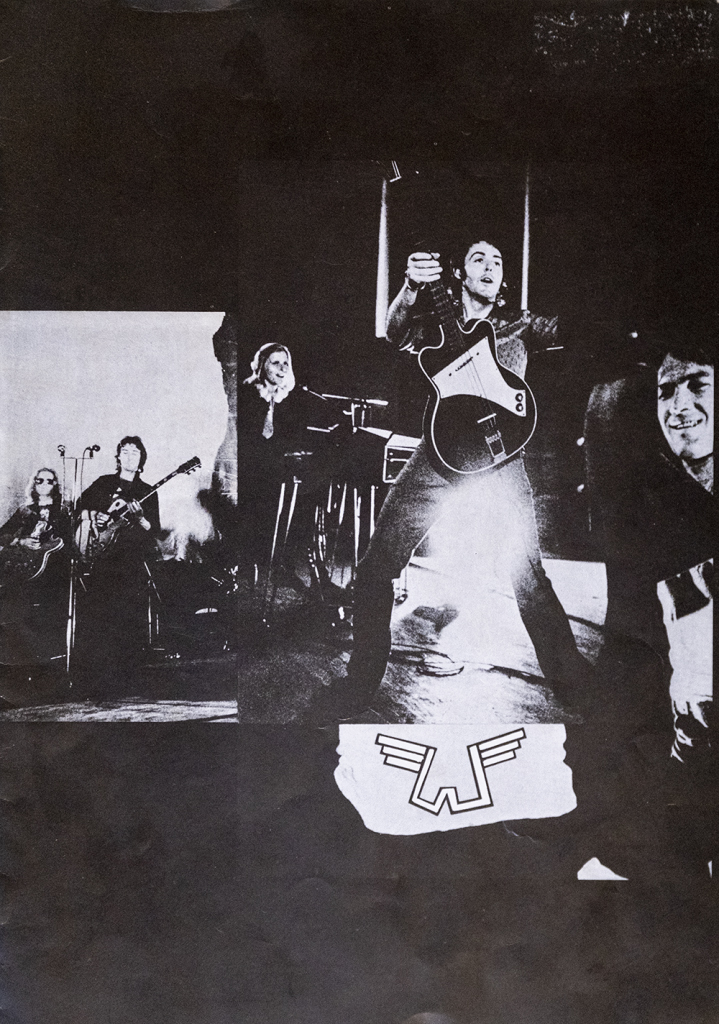
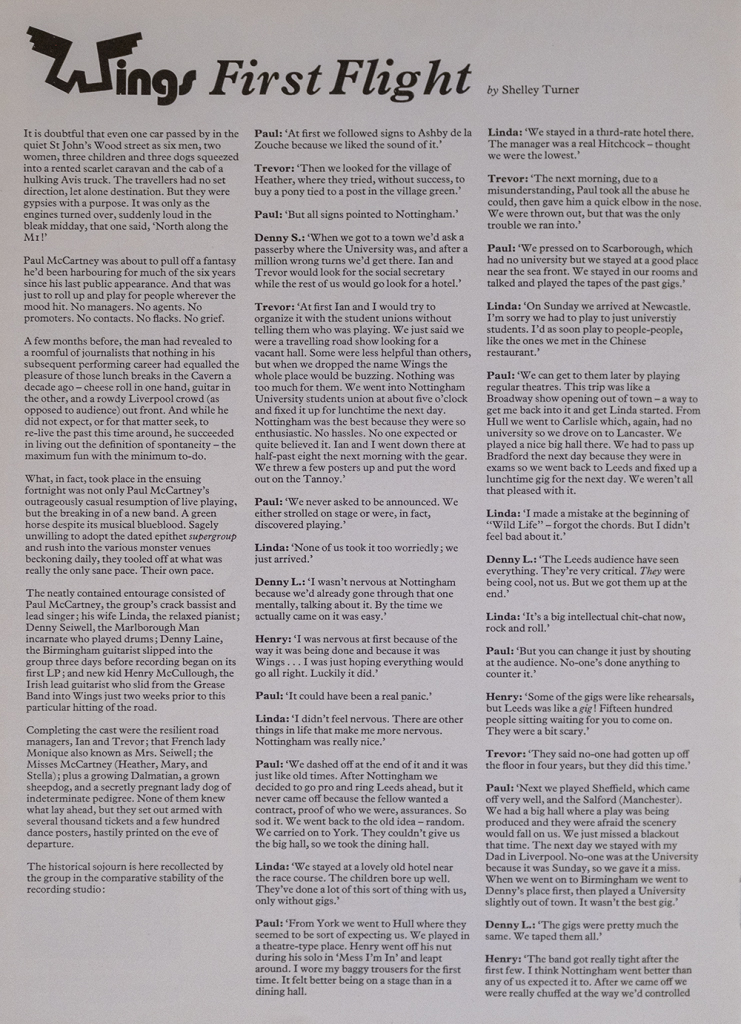
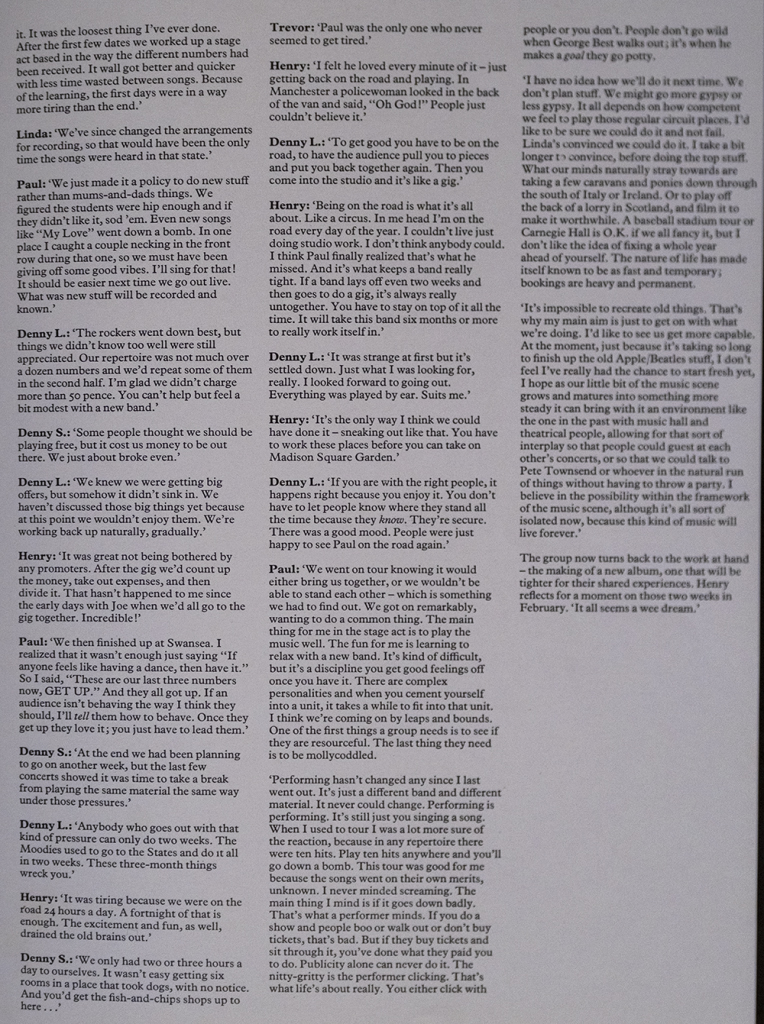
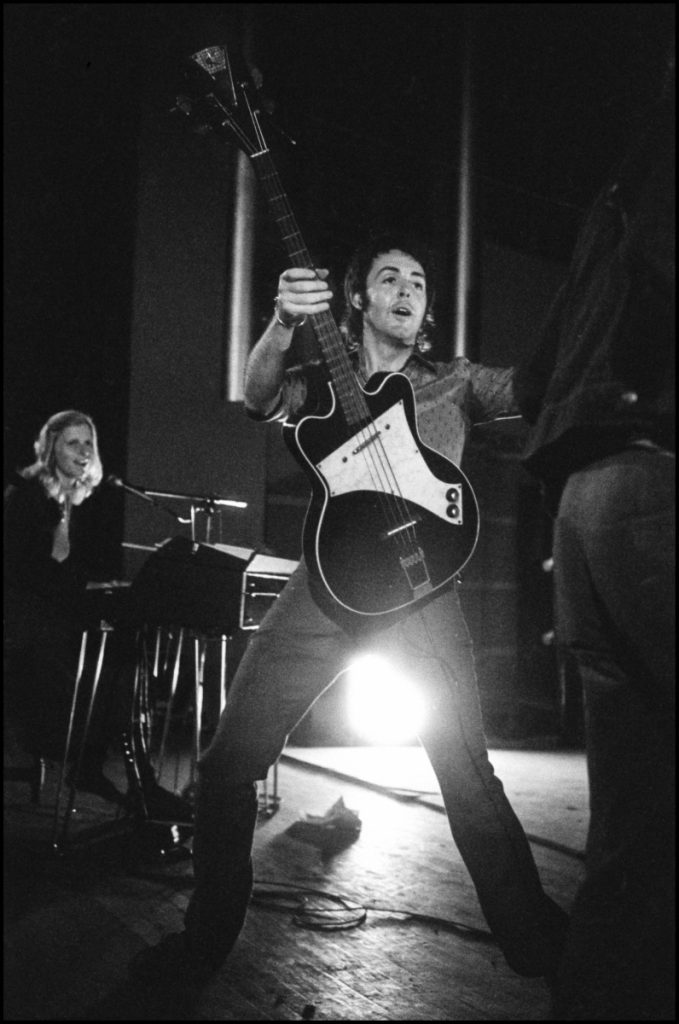
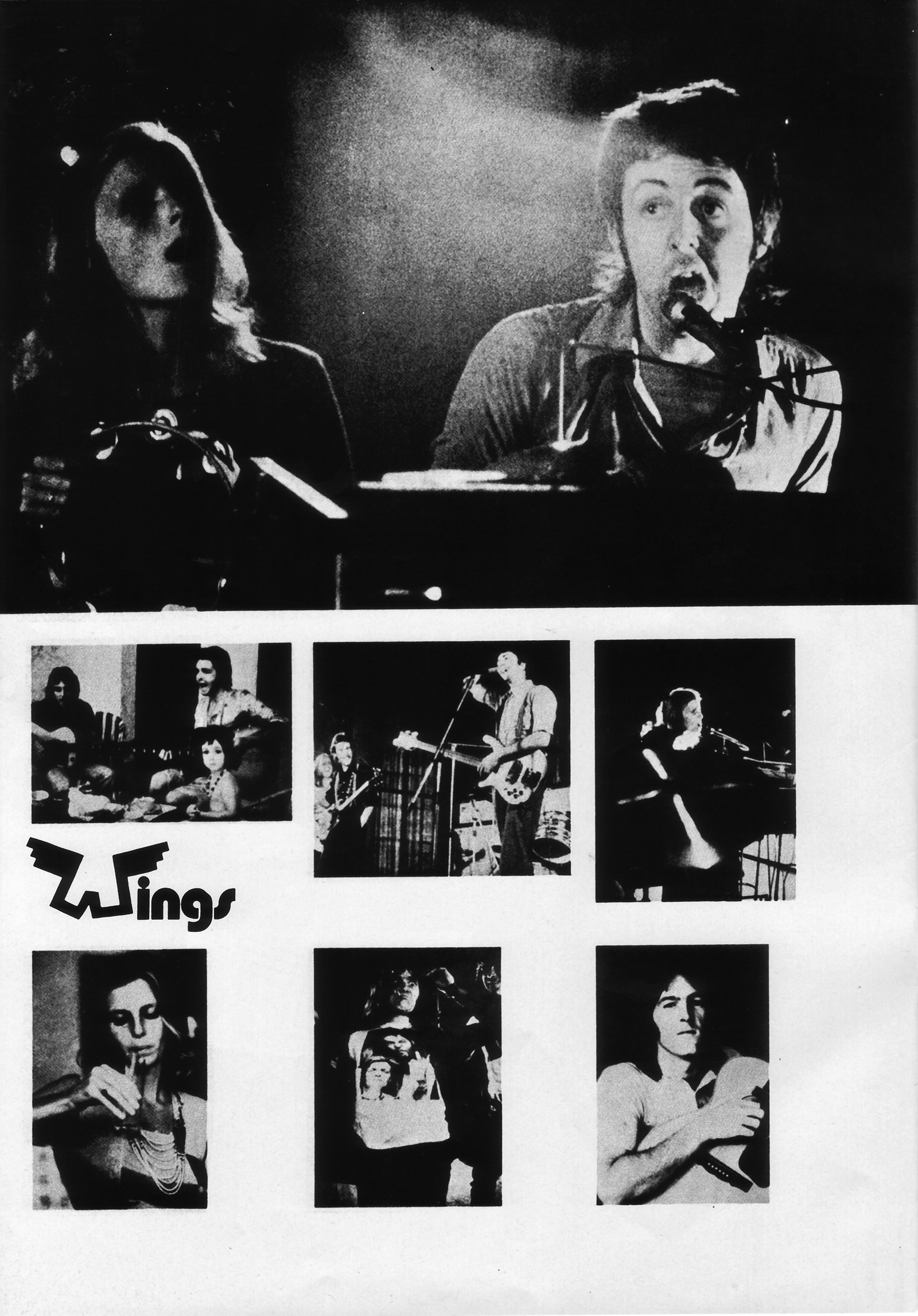
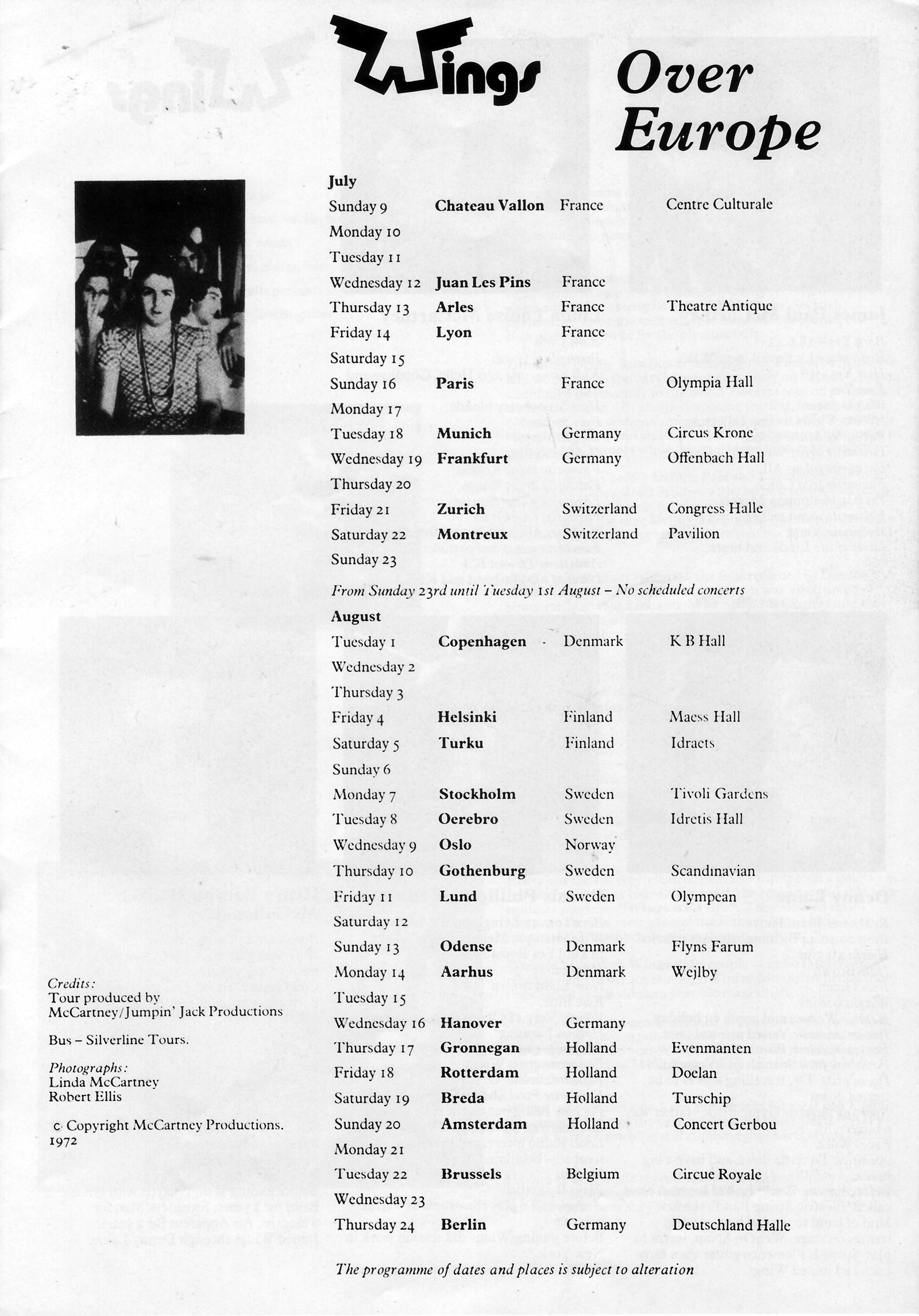
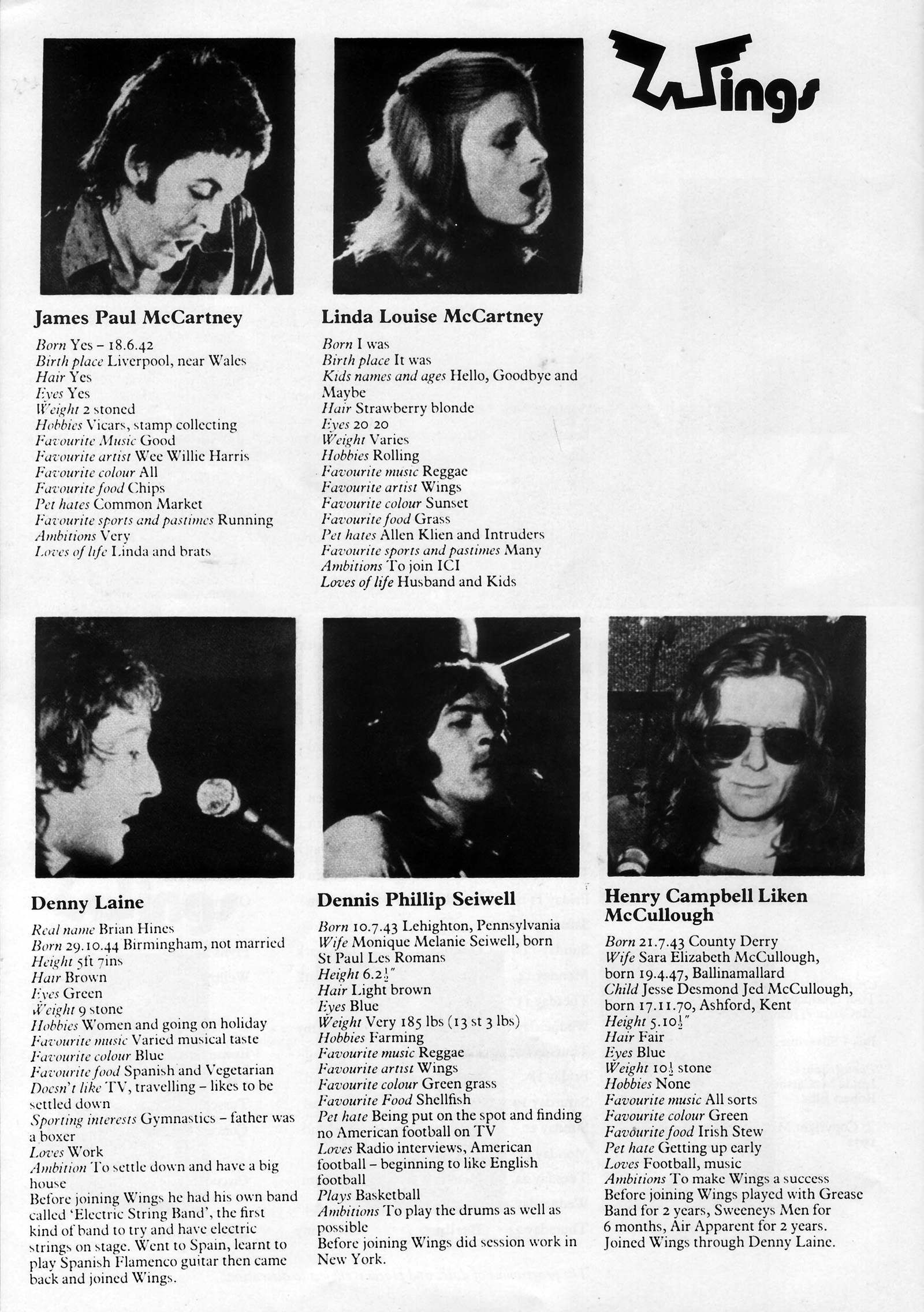

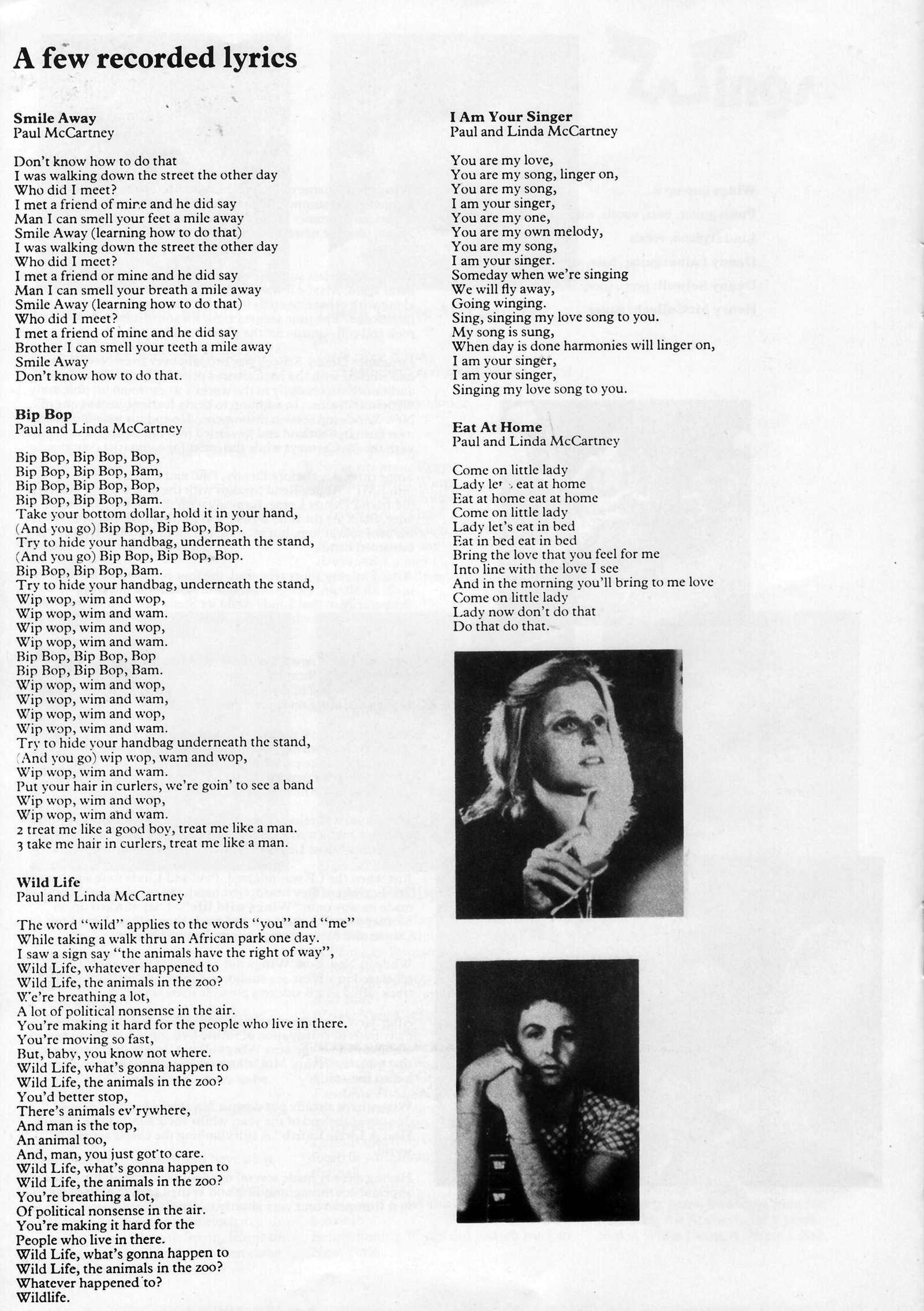
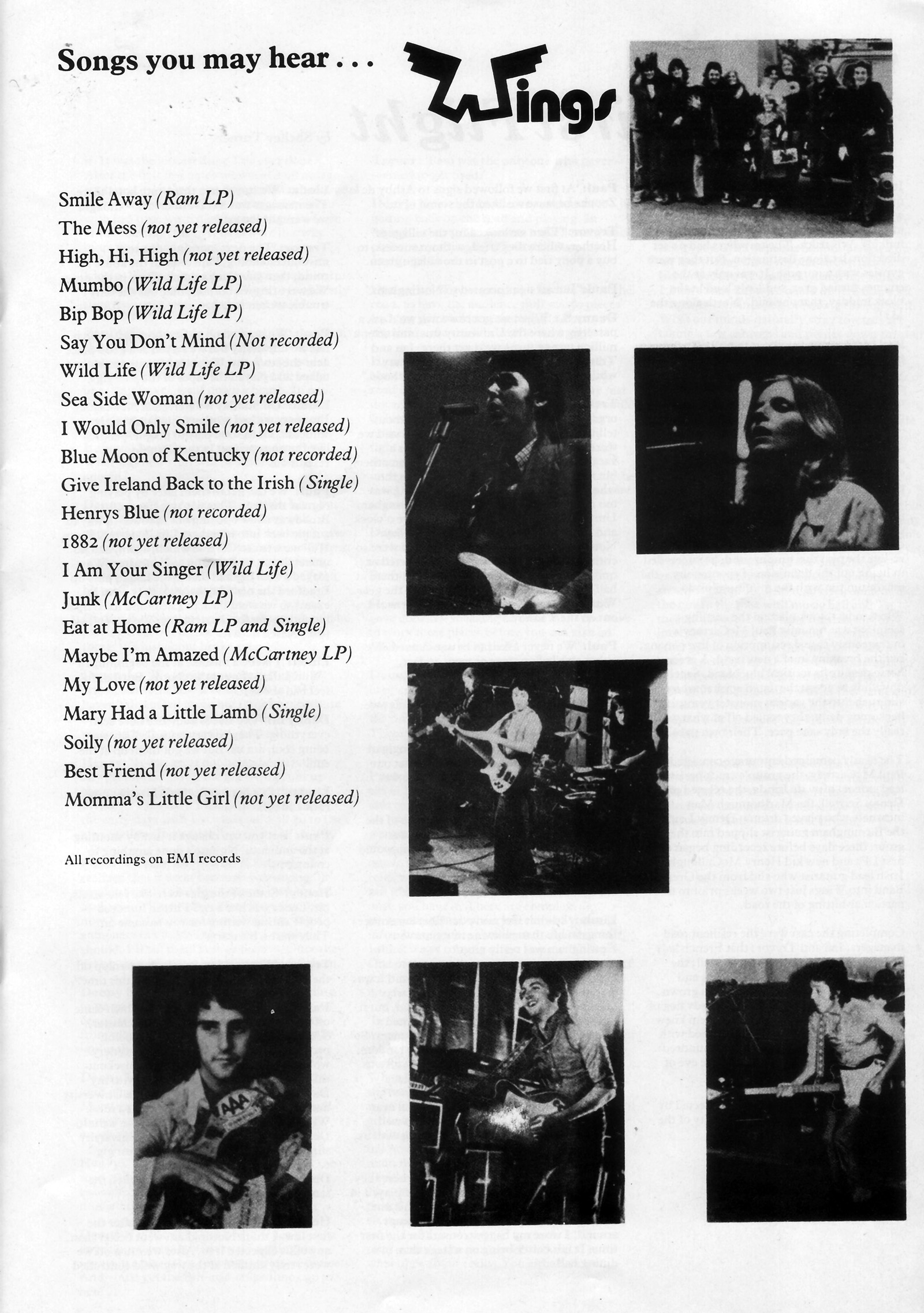
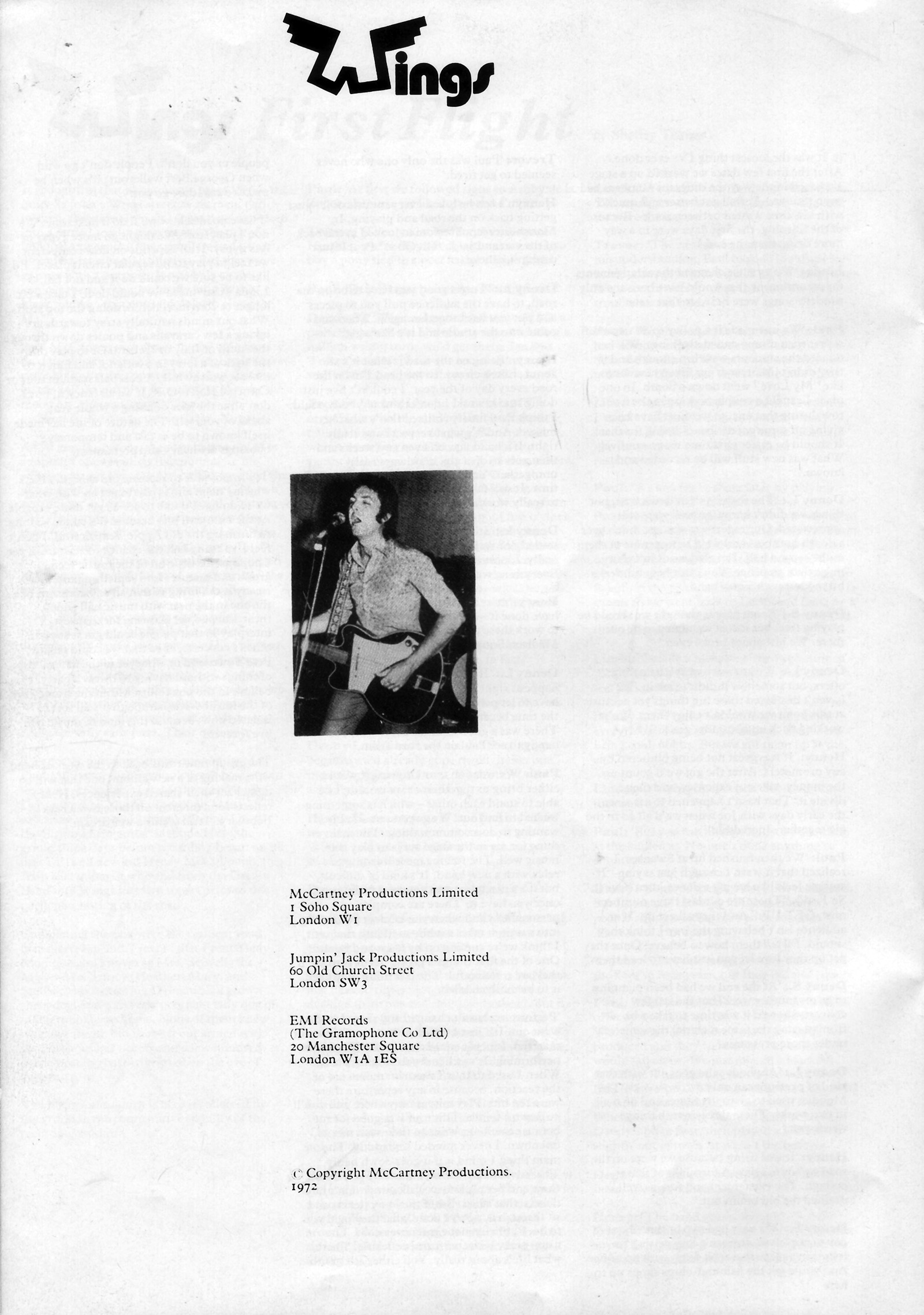
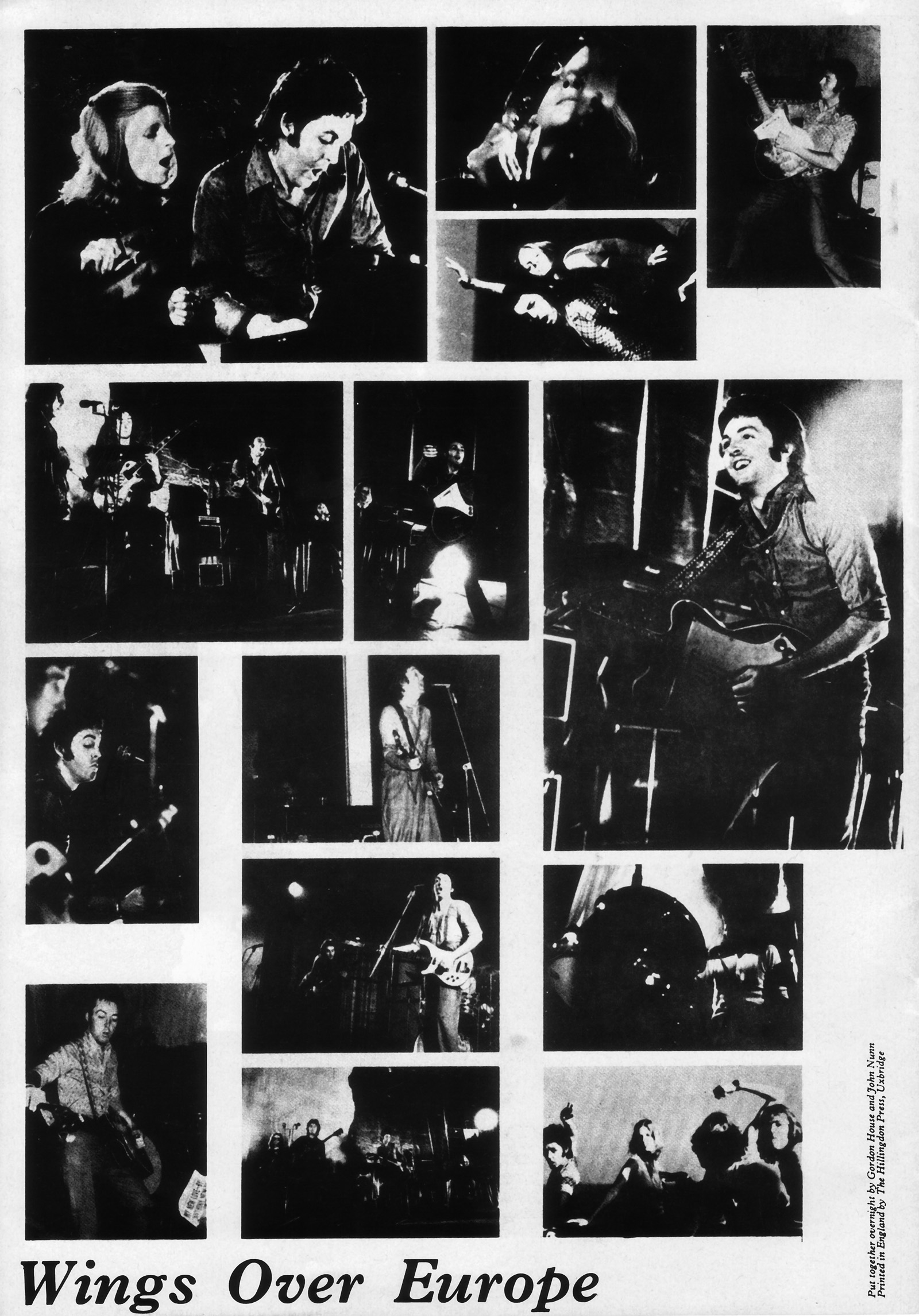
Last updated on June 5, 2022

Contribute!
Have you spotted an error on the page? Do you want to suggest new content? Or do you simply want to leave a comment ? Please use the form below!